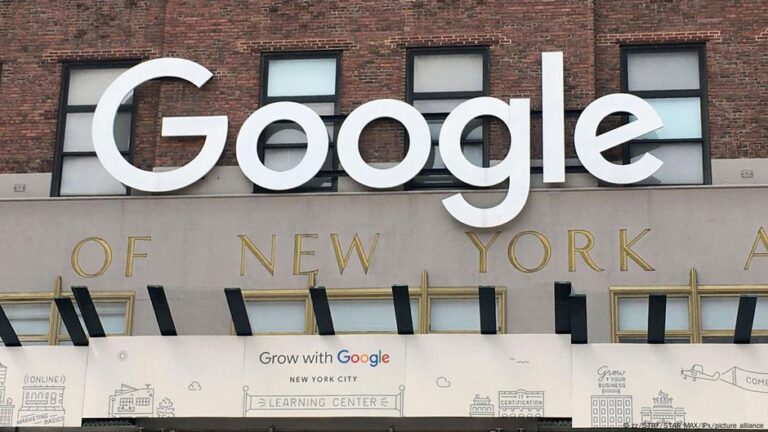In a tech-world irony, artificial intelligence (AI) seems to have come to the rescue of Silicon Valley old-guard firm Google and its Chrome web browser.
About a year ago, the future of Google looked shaky. In the biggest antitrust challenge it ever faced, a US court in Washington, DC, found that it illegally monopolized the search market with huge payments to other companies to ensure its search engine was the default option, which effectively blocked other competitors.
With this ruling, the US Department of Justice wanted to force Google to sell its lucrative Chrome browser or Android operating system. Many commentators foresaw the end of the tech giant and its search engine dominance.
A drawn-out and technical court case
The judge in the case, Amit Mehta, took over a year to decide the penalty. His final decision, announced on September 2, 2025, was met with relief from the company. It seems the tide had turned.
In a 230-page “memorandum opinion” Mehta decided that Google would not have to be broken apart but would have to share some information with rivals to increase competition and create an oversight committee to manage compliance.
It was a monumental — if limited — decision. What was most surprising was the judge’s view that generative artificial intelligence with its tens of millions of users had changed the trajectory of the entire search engine business in a few short months.
AI chatbots on the loose in Silicon Valley
“The emergence of generative AI changed the course of this case,” Mehta wrote on the first page of his judgment.
When the case first started in 2020, AI was less of a topic. Today, it is nearly impossible to avoid. There are concerns in the industry that AI-powered search engines could massively disrupt, if not replace, conventional search engines, a threat the judge now accepts as a real possibility.
Indeed, AI is quickly changing how people search and use the internet more generally. Instead of getting a set of links to follow, AI-powered chatbots give short answers directly, which satisfy many queries, for example.
Google has added chatbot features, and OpenAI, the company behind ChatGPT, launched its Operator browser this year. Other big companies working with similar generative AI products are Anthropic, DeepSeek, Meta, Microsoft, Perplexity and xAI.
AI and the future of online searches
“Chrome is a browser, and, for many, it continues to be an entry point for internet use,” Jinjun Xiong,the director of the University at Buffalo’s Institute for Artificial intelligence and Data Science, told DW.
But AI is quickly changing how users find information online. Traditional search interfaces are “being replaced by the chat interface, and this trend will continue to accelerate,” Xiong said.
He said Three things were driving this shift: ChatGPT’s free model and its easy access to the power of AI, increased awareness of the technology through constant media coverage, and amazing AI technological advancements.
AI turns search engines upside down
To underscore his newly acquired understanding of AI and the online search business, Mehta dedicated 30 pages in his judgment to explain what it is and how the market works.
Google is still dominant in the search industry, Mehta concluded, but “artificial intelligence technologies, particularly generative AI, may yet prove to be game changers.”
Though this AI technology is not yet close to replacing general search engines, “the industry expects that developers will continue to add features to generative AI products to perform more like general search engines.”
The judge acknowledged the “new realities” of the business, and said these had a profound impact on his judgement. “The money flowing into this space, and how quickly it has arrived, is astonishing,” he wrote. “These companies already are in a better position, both financially and technologically, to compete with Google than any traditional search company has been in decades.”
To show the complexity of dealing with such groundbreaking technology, Mehta added a personal note. “Unlike the typical case where the court’s job is to resolve a dispute based on historic facts, here the court is asked to gaze into a crystal ball and look to the future,” he wrote.
‘Very powerful ecosystem’
Some observers expect to see little change in how Google will do business after the ruling. Others say the company will have to rejig how it works.
The real issue is the power of the entrenched ecosystems created by companies such as Google, Xiong said. Going forward Google will be more careful as it maneuvers this ecosystem and its competition.
“Google or Chrome have built a very powerful ecosystem around the various tools that people are heavily dependent on, such as Gmail, Google Docs, YouTube, Google Drive, Maps, etc.,” Xiong said. “And those tools will also get better with Google’s AI technologies, as well.”
These existing ecosystems make it hard for other companies to break in and compete. Xiong would like to see Big Tech embrace an open ecosystem, something that the judge’s ruling did not actively encourage.
Edited by: Uwe Hessler


